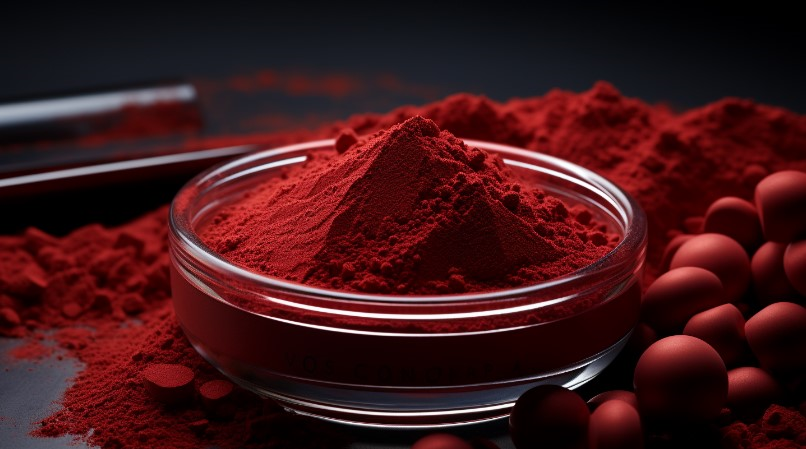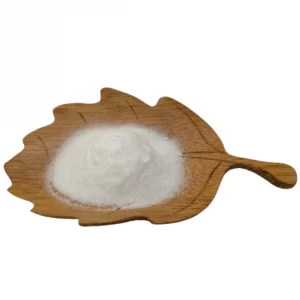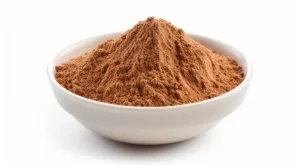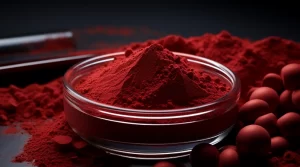Vitamin B12

Vitamin B₁₂ is also known as cyanocobalamin and cobalamin. The main forms of vitamin B₁₂ in the body are cyanocobalamin, hydroxocobalamin, methylcobalamin and 5′-deoxyadenosylcobalamin. The latter two It is the active form of vitamin B₁₂.
Vitamin B₁₂ in food is combined with protein. After eating, vitamin B₁₂ is released under the action of gastric acid, pepsin and trypsin, and combines with a glycoprotein intrinsic factor secreted by the stomach to form vitamin B₁₂-intrinsic. The factor complex is then absorbed in the ileum. Vitamin B12 that is not bound to intrinsic factor is excreted in the feces.
Therefore, insufficient gastric acid secretion, congenital intrinsic factor deficiency, gastric disease, insufficient pancreatic enzyme secretion, ileal disease, etc. will all cause reduced absorption of vitamin B12, thereby causing disease.
The amount of vitamin B12 stored in the body is very small, about 2 to 3 mg, and it is mainly stored in the liver.
The enterohepatic circulation of vitamin B₁₂ is very important for its reuse and body stability. Normally, about half of the vitamin B₁₂ excreted by the liver into the small intestine through bile can be reabsorbed.
Vitamin B12 participates in methionine metabolism and prevents hyperhomocysteinemia
As a coenzyme of methionine synthase, vitamin B12 catalyzes the conversion of 5-methyltetrahydrofolate into tetrahydrofolate, transfers the methyl group to homocysteine (Hcy), and synthesizes methionine under the action of methionine synthase. Methionine-homocysteine metabolism maintains the balance of cellular and circulating levels of Hcy. Many diseases caused by vitamin B12 deficiency are more or less related to this function.
Vitamin B12 promotes the development and maturation of red blood cells and prevents pernicious anemia
Vitamin B12 participates in hematopoietic processes such as the production of red blood cells and the absorption of iron. It mainly promotes the maturation of red blood cells in the hematopoietic system. When vitamin B12 is lacking, the biochemical reaction of converting deoxyuridine nucleoside into deoxythymidine nucleoside in cells is blocked, causing the growth rate of red blood cells to slow down.
Vitamin B12 improves folic acid utilization
Vitamin B12 can protect the transfer and storage of folic acid within cells, increase its utilization efficiency, and promote the metabolism of carbohydrates, fats and proteins.
When vitamin B12 is deficient, it affects the transfer of methyl groups from homocysteine to methionine, reduces the ability of 5-methyltetrahydrofolate to transfer methyl groups, promotes the accumulation of methyl groups in cells, and reduces the utilization efficiency of folic acid.
Vitamin B12 protects the nervous system
Vitamin B12 deficiency can cause combined degenerative diseases of the spinal cord and cerebral white matter. Vitamin B12 is involved in the myelination process, so neuropathological changes caused by vitamin B12 deficiency are characterized by demyelination. Related diseases include: Alzheimer’s disease, Parkinson’s disease and other common diseases.
The early manifestations of vitamin B12 deficiency in children are abnormal mood, dull expression, slow reaction, and eventually anemia.
Vitamin B12 and pregnancy
Vitamin B12 deficiency is associated with adverse pregnancy outcomes such as fetal neural tube defects, premature birth, miscarriage, preeclampsia, placental abruption, fetal growth restriction, and gestational diabetes.
Main causes of vitamin B12 deficiency
① Insufficient intake, such as long-term vegan diet
②Malabsorption, such as the elderly and people with low gastric acid secretion such as gastrectomy
③Increased demand, such as pregnancy, postpartum, tapeworm disease, etc.
④Congenital vitamin B12 metabolism disorder, such as congenital lack of intrinsic factor, etc.
⑤Drug-induced deficiency. Studies have found that oral metformin can lead to a decrease in serum vitamin B12 levels.
Symptoms of vitamin B12 deficiency
① Megaloblastic anemia
② Hyperhomocysteinemia: Increases the risk of arteriosclerosis, thrombosis, and hypertension.
③ Neuropathy: neurological symptoms such as depression, memory loss, and tremors of limbs may occur.
Main food sources of vitamins
Vitamin B₁₂ in the diet comes from animal foods. The main food sources are meat, animal offal, fish, poultry, shellfish and eggs. Contains less milk and dairy products. Plant foods basically do not contain it, so vegetarians should pay attention to supplementing vitamin B₁₂.
Referensi:
[1] Chinese Nutrition Society. Reference intake of dietary nutrients for Chinese residents. Beijing: Science Press, 2014. [2]Rush EC , Katre P , Yajnik CS . Vitamin B12: one carbon metabolism, fetal growth and programming for chronic disease.[J]. European journal of clinical nutrition, 2014, 68(1):2.[3]Micle O, Muresan M, Antal L, et al. The influence of homocysteine and oxidative stress on pregnancy outcome[J]. J Med Life, 2012, 5(1):68-73.[4]Creus, Montserrat, et al. “Plasma homocysteine and vitamin B12 serum levels, red blood cell folate concentrations, C677T methylenetetrahydrofolate reductase gene mutation and risk of recurrent miscarriage: a case-control study in Spain.” Clinical Chemistry & Laboratory Medicine 51.3(2013):693-699.[ 5]Li Hongtao, Zhao Yingchun. Vitamin B12 and central nervous system diseases[J]. Chinese Journal of General Practitioners, 2012, 11(11):3.[6]Fu Yi, Chen Shengdi, Lu Guoqiang. Hyperhomocysteinemia Discussion on the relationship between cerebral infarction and Parkinson’s disease [J]. Chinese Microcirculation, 2003, 7(4):3.
vitamin B12 pemasok: www.backvita.com
Email: [email protected]
Telepon +86 (029) 8187 2325



